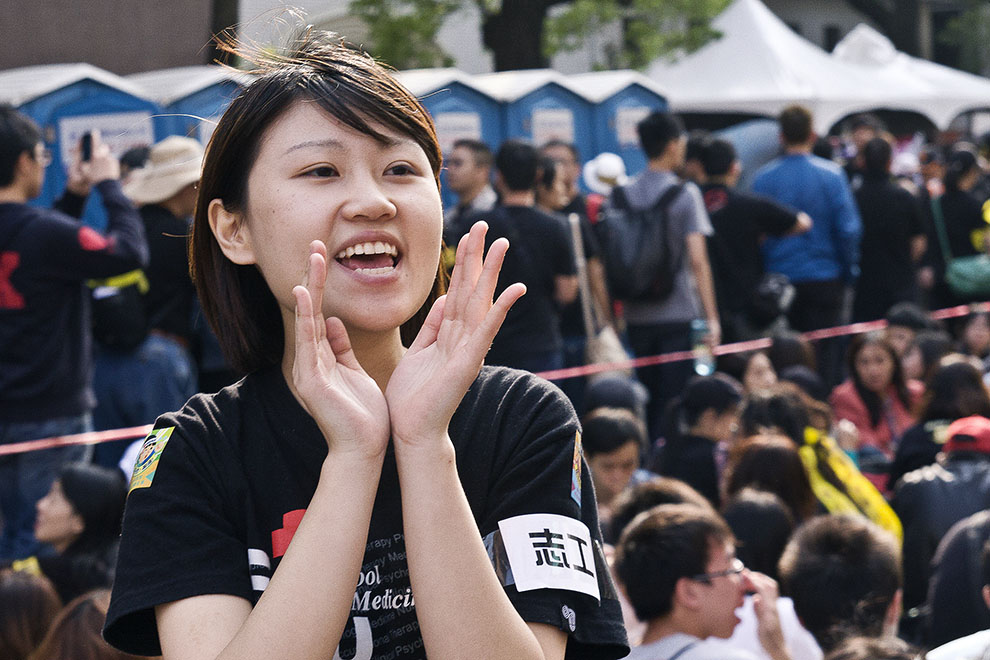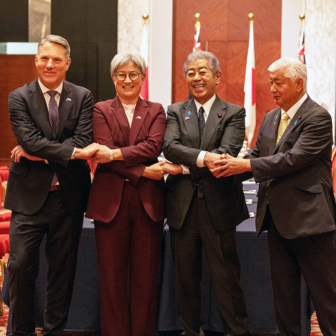If there is one group of people watching recent events in Hong Kong hawk-eyed, it is the people of Taiwan. After all, the “one country, two systems” rubric was devised in the early 1980s by former paramount leader Deng Xiaoping with them in mind, before it was deployed during negotiations with the British over Hong Kong’s reversion to mainland sovereignty. Chinese president Xi Jinping even used the formulation in its original sense in September, just as the Umbrella Revolution was rocking the central area of Hong Kong, as a way of characterising how the cross–Taiwan Strait issue could be resolved politically. Needless to say, Taiwan’s president Ma Ying-jeou gave it short shrift.
It is not clear that China really understands the evolving political dynamics of Taiwan. Things have grown complicated very quickly. Gone are the good old days of dealing with the nicely bifurcated world of the KMT (the governing Kuomintang, an old enemy and therefore almost something of a friend now) and the DPP (the Democratic Progressive Party, which has been painted into a corner as the true enemy by the People’s Republic). The causes of this shift are many, but the Sunflower Movement, which rocked Taipei and other Taiwanese cities in March and April, clearly marked the advent of third-force, oppositional, grassroots politics. Those taking part didn’t support the KMT, and nor (despite initial assumptions otherwise) did they support the DPP. Like the Occupy Wall Street movement, or protest movements throughout much of the world since the financial crisis of 2008, they were composed of people who largely loathed the organised political parties and were fed up with elites.
Going on talks I had with government officials and academics last month in Beijing, as part of a European delegation on cross-strait issues, the result on the mainland seems to be general bemusement. Faced with the fact that there is now an amorphous third force in Taiwan politics, the old discourse of cursing the ground the DPP walks on and generally accepting the KMT wilts a bit. That force may only just be getting organised, and has yet to show its true face, but it is a substantial new player. Like newly emerging parties elsewhere, from the UK Independence Party to the Palmer United Party, it might currently be small but it promises to put a disruptive cat among some fairly entrenched and complacent pigeons.
Mainlanders engaged with Taiwanese issues lack an updated conceptual framework to make sense of this new development and factor it into their thinking. There is no doubt that this year’s protests were symptomatic of a deep sense of disenfranchisement and unease. According to the August monthly survey by the Taipei-based New Taiwan Peace Foundation, neither the DPP nor the KMT can draw much comfort from recent public opinion trends. The DPP is polling better than the incumbent government, and should be able to win the presidential election in 2016 when Ma’s second term ends. But the lack of confidence in both parties is high. Some 63 per cent dislike the KMT, and 53 per cent the DPP. This is hardly a ringing endorsement of either party. And while the street protests have ended, those who assume everything is back to normal need to take heed of the August survey conclusion: “The Sunflower Movement has deepened Taiwan identity and independence mentality.” News of Hong Kong’s travails has probably only sharpened this.
For Taiwanese politicians, this means fighting on two fronts, domestic and foreign. Since 2008, Ma and his government have managed to stabilise what had been very fractious relations with China during the DPP’s period in power, 2000–08. A major framework agreement for economic cooperation was signed in 2010, and air, postal and people-to-people links have flourished. But the price has been high. Many Taiwanese evidently feel overwhelmed; the mainland, they feel, is starting to dominate their economy, dictate their international space, and encroach on them in ways they have never experienced before.
The New Taiwan Peace Foundation’s survey gives a stark snapshot of this feeling: in August, 60 per cent of those surveyed said they were Taiwanese and 32 per cent Chinese Taiwanese. Only 4.5 per cent said they were simply Chinese. When asked whether they would chose “Taiwanese” or “Chinese” as the single word to describe themselves, 88 per cent opted for “Taiwanese.” And while 63 per cent felt they were an independent country, 60 per cent wanted to preserve the status quo, under which tough issues like the island’s final status are simply shelved till the day they might be resolvable. Taiwanese politicians have to work in this territory of ambiguous opinion. No wonder they often look bemused.
Across the strait, the Beijing leadership is not good at dealing with identity politics. For them, it is a threat to unity, and its expressions in any shape or form are dealt with curtly. Coming up with a flexible framework that allows at least some expression of Taiwanese identity without enraging the Chinese leadership has been tough. As the mainland’s economy has rocketed ahead and it has become geopolitically more empowered, “One China” ideas have gravitated more in Beijing’s favour.
Recent years have seen attempts in Taiwan to stress kindredness while leaving at least some space for difference. In government, the DPP used the term “brotherhood relations.” Leaving aside the gendered nature of this expression, the fact that it has had little take-up in Taiwan, and almost none on the mainland, shows how challenging it is to encapsulate the issue of Taiwanese identity in ways that grant it space and dignity without causing political battles internally or across the strait.
The menu of political headaches on the island is unlikely to diminish. China will continue pushing economically and diplomatically. Domestic politics will continue to become more complex. There is wisdom in crowds, however, and the large numbers on the island who want the status quo to continue are probably right. Any other option – a push for more international diplomatic recognition, a unilateral declaration of independence – would be like supplying a spark to an unlit bonfire. No one really knows where things might eventually end up. And Taiwanese already know that a security guarantee from Washington is a currency that diminishes in value by the day – not because of a lack of American support, but simply because the mainland is now a much more formidable military opponent and the risks of getting dragged into a conflict would be unimaginably steep even for the world’s sole military superpower.
The European Union and others like to declare their desire to see the political system in China move in a more pluralistic, tolerant direction. But the Taiwanese have the most vested interest in this happening. A Beijing that had a system closer to theirs in Taipei might at least be one where a more flexible political deal could be done. But the day when such a system exists looks like lying far into the future, if indeed it ever comes into being at all. The most that Taiwan can do is to continue what it has managed to do for the past six decades – maintain its prosperity, seek quiet space where it can find it, live by its wits, and practise the Dengist virtue of “keeping a low profile and biding its time.”
The greatest threat is a Chinese leadership that might, just might, think the risks of going for the ultimate prize – a China reunified completely after over a century of division – are worthwhile. The world should not be complacent about this. Taiwanese certainly aren’t. International support for the status quo is pragmatic, wise and prudent; in this policy area, at least, innovation is not at present necessary. Preserving the way things are is safest and best, and that should be the aim even of the most instinctive radicals. •




